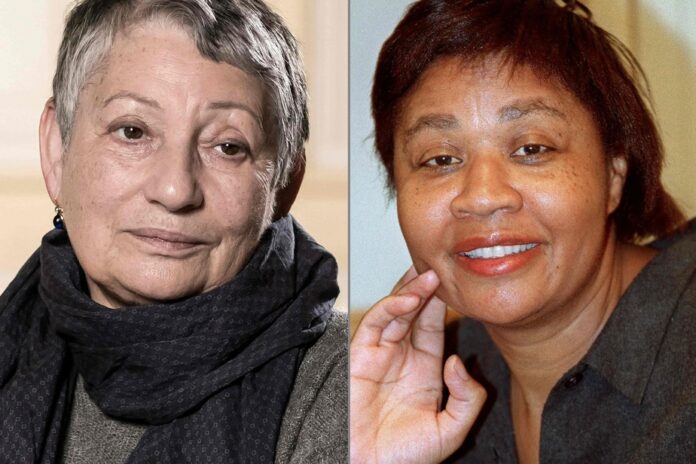(Stockholm) Will the Swedish Academy dare to make an overtly political choice? The Nobel Prize for Literature, awarded Thursday, could go to a writer who values freedom of expression, according to experts.
The names of the Russian woman of letters and opponent of the Kremlin, Lioudmila Oulitskaïa, with her epic novels in the Steinbeckian tradition, or even Salman Rushdie, the famous British writer pursued by a fatwa and victim of a serious attack in August 2022, come back in the predictions.
The Swedish Academy could also, as it is inclined to do, reward a writer less known to the general public such as the avant-garde Chinese writer Can Xue.
Choosing Ulitskaya would prove that “literature remains free from politics” by highlighting Russian literature despite the war in Ukraine, believes Lisa Irenius, head of the cultural department of the daily Svenska Dagbladet.
This would be an opportunity to distinguish an author exiled in Germany and who likes to stand up to Russian power: the Academy would send “a very political message”, believes for his part Björn Wiman of the newspaper Dagens Nyheter (DN).
He thinks that the autobiographical work of the American-Antiguan Jamaican Kincaid has its chances this year, but he would be delighted to see Salman Rushdie rewarded: “It is about time that he wins, if that is the case, I would take my Hats off to the Academy”, because this would salute freedom of expression, of which the author is, for many, the incarnation.
Since the scandal
Last year, the award went to Annie Ernaux, French author of a work recounting the emancipation of a woman of modest origins, who became, despite herself, a feminist icon.
And the previous edition had crowned the British novelist Abdulrazak Gurnah, born in Zanzibar, who explores the torments of exile, anti-colonialism and anti-racialism.
“In recent years, there is a greater awareness around the fact that we cannot remain in a Eurocentric perspective, that we need more equality, that the price reflects the times,” says Carin Franzén, professor of literature at Stockholm University.
This echoes the new composition of the Academy, almost half of whose members have been renewed since the Nobel awarded to Handke, underlines the cultural editor-in-chief of DN. “She changed her image,” he explains.
Not hesitating to confront criticism, several of its members, authors, philosophers and even professors, are very engaged in the societal debate, organize conferences on freedom of expression and equality, and publish columns in the Swedish press.
“Unthinkable five years ago,” says Björn Wiman.
The Iranian poet Jila Mossaed, seat number 15 of the Academy, has thus taken a stand against the Iranian regime and praises the literary quality of the work of the Syrian poet Adonis, who has been tipped for the Nobel for more than ten years.
“But it is still very difficult to guess and know” how the members of the Academy think, underlines Lina Kalmteg, literary journalist at Swedish National Radio.
Jury deliberations are sealed for 50 years.
Other “regular” nobility candidates return to critics’ lists, such as the Romanian Mircea Cărtărescu, the Hungarians Péter Nadas and Laszlo Krasznahorkai, or the French Michel Houellebecq or Maryse Condé.
This traditional game of predicting the Nobel Prize in literature is running out of steam, however.
“Given the Academy’s promise to open up to other geographical areas, I fear that we will ultimately not have the knowledge necessary to “guess well”, even with a doctorate in literature,” says Victor Malm, culture editor of the tabloid Expressen. This year he is counting on the Norwegians Jon Fosse or Dag Solstad.
To honor its promise, the Swedish Academy consults external experts to understand the exact scope of works from other horizons.
In the meantime, the numbers tell a different story.
Since the creation of the prize, only 17 women have won the prestigious literary prize, out of a total of 119 winners. And for 16 French winners, an Arabic-speaking author was distinguished: Naguib Mahfouz in 1988 (Egypt).















